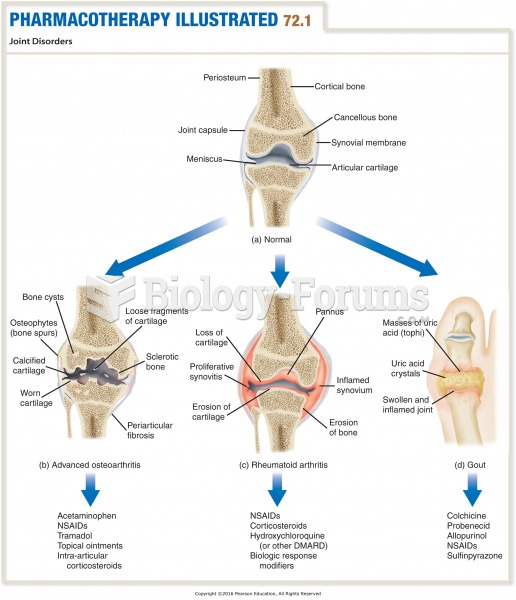|
|
|
Adolescents often feel clumsy during puberty because during this time of development, their hands and feet grow faster than their arms and legs do. The body is therefore out of proportion. One out of five adolescents actually experiences growing pains during this period.
If all the neurons in the human body were lined up, they would stretch more than 600 miles.
According to the American College of Allergy, Asthma & Immunology, more than 50 million Americans have some kind of food allergy. Food allergies affect between 4 and 6% of children, and 4% of adults, according to the CDC. The most common food allergies include shellfish, peanuts, walnuts, fish, eggs, milk, and soy.
Pubic lice (crabs) are usually spread through sexual contact. You cannot catch them by using a public toilet.
Approximately 25% of all reported medication errors result from some kind of name confusion.







